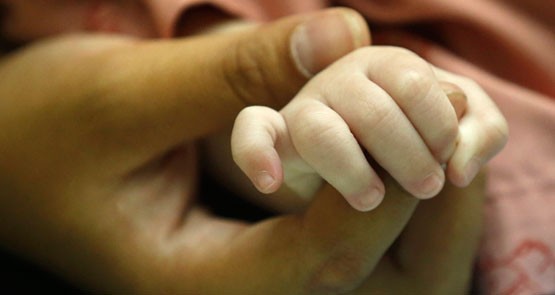
Queensland MP George Christensen will chair an inquiry into Australia’s often murky surrogacy laws next year. But what will the inquiry find? And how does Australia measure up to other countries when it comes to surrogacy?
The high-profile case of baby Gammy, born to a Thai surrogate mother in 2014 and left behind by his Australian parents, brought the issue of Australia’s surrogacy laws to public attention earlier this year, and in response Christensen initiated a round-table discussion on surrogacy to the House Committee on Social Policy and Legal Affairs. Christensen, who heads the committee, will be part of the round table’s only recommendation: an inquiry into domestic and international surrogacy announced late last week.
Surrogacy laws in Australia are murky at best. Australia has become the largest market for international surrogacy globally, perhaps because of the difficulty of arranging one here.
University of Griffith’s Patricia Fronek, who specialises in adoption and surrogacy, says the inquiry is going to be a means to achieve an ends. “But it’s an interesting choice of chair, he’s a very conservative politician.”
But Christensen told Crikey that he was going into the inquiry with an open mind and was open to all submissions.
The fractured state-based laws are inconsistent and in some states discriminate against same-sex couples. Some worry that Christensen, a hard-right conservative, might further impinge on the rights of same-sex couples, but he told Crikey “the inquiry is blind to that issue”. Christensen says it’s impossible to stop people arranging an altruistic surrogacy with a friend or relative, and that legislation should focus on regulation to protect the rights of the child.
How does surrogacy work?
Surrogacy is where a woman agrees to carry the baby of another person or couple. As the law now stands, the intended parents can only gain custody and guardianship of the baby after it is born. This happens through a court order and the permission of the surrogate must be obtained even if she is not the biological mother of the child.
Because surrogacy arrangements aren’t enforceable, a surrogate can’t be forced to hand over the baby. Intended or biological parents have to apply to the Family Court for a so-called parentage order to have the child to live with them.
Surrogacy falls into two categories: commercial and altruistic. Altruistic surrogacy means the surrogate mother does not receive any compensation except for “reasonable” medical expenses. Commercial surrogacy, where financial compensation is awarded, is illegal in Australia
Does commercial surrogacy exploit women?
Christensen is particularly concerned with stories of exploitation of women in developing countries such as Thailand and Nepal. And Thailand banned foreigners from obtaining commercial surrogacies after the baby Gammy incident.
Fronek says there isn’t enough research to tell us more about best practices. “The role of money is problematic in a number of practices, not just surrogacy but also adoption,” she said.
Christensen will be looking at surrogacy laws in California, which he says has some of the best regulations in the world. Commercial surrogacy is allowed, gestational surrogacy contracts are enforced and parents can obtain a legal parentage order prior to the birth of the child.
What are the domestic surrogacy laws in Australia?
Surrogacy laws in Australia differ widely by state. In NSW, Tasmania, Queensland and Victoria, any person can be an intended parent. However in South Australia, Western Australia and the ACT only heterosexual married/de facto couples, or single women are allowed.
Reasons allowed for arranging a surrogacy also differ. In NSW, Tasmania, Queensland and Victoria prospective parents can cite social reasons as a need to arrange a surrogacy, but other jurisdictions require there to be a medical reason. The ACT does not require there to be a medical or social need for a surrogacy.
The NT doesn’t have any laws regarding surrogacy.
Is international surrogacy allowed?
Again the answer is complicated. It is illegal for people to enter into a commercial surrogacy arrangement overseas if they are in NSW, the ACT or Queensland. If found guilty, you can be punished by fines or imprisonment. In other states it’s not a crime, but the prohibition on commercial surrogacy remains. This means it may be difficult to obtain a parentage order upon arrival back in Australia.








Crikey is committed to hosting lively discussions. Help us keep the conversation useful, interesting and welcoming. We aim to publish comments quickly in the interest of promoting robust conversation, but we’re a small team and we deploy filters to protect against legal risk. Occasionally your comment may be held up while we review, but we’re working as fast as we can to keep the conversation rolling.
The Crikey comment section is members-only content. Please subscribe to leave a comment.
The Crikey comment section is members-only content. Please login to leave a comment.